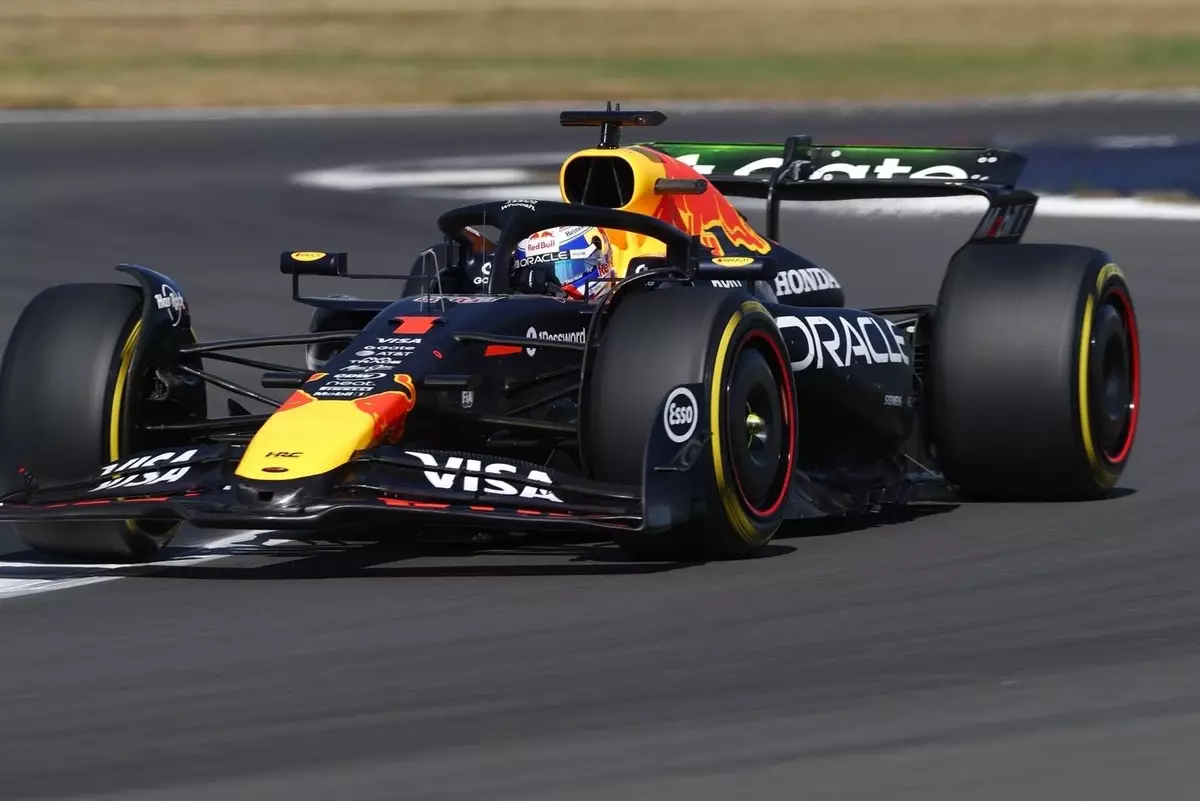Max Verstappen’s candid critique of the recent practice sessions at Silverstone highlights a broader issue facing Red Bull Racing—an organization battling to uphold its position at the pinnacle of Formula 1. Verstappen, a driver whose recent record-breaking success has made him the face of the sport, publicly admits to a subpar day, citing a lack of balance and sensitivity to wind conditions. While some might dismiss this as typical driver dissatisfaction, it signifies a deeper concern: the current performance gap from rivals like McLaren and the instability that threatens to undermine Red Bull’s competitive edge. Verstappen’s frustration is not merely about one bad day; it is symbolic of a squad trying to recalibrate amidst mounting challenges.
His remarks underscore the inherent volatility of racing at the highest level, where a car that feels “poor” one day can deliver surprisingly competitive long-run pace another. Yet, Verstappen’s honesty also lays bare the difficulty in extracting consistent performance in tricky conditions, especially when external factors like wind add unpredictability. It signals that Red Bull’s current setup may be overly sensitive, unable to offer the steady baseline that champions traditionally rely on to maximize points. This vulnerability risks allowing rivals like McLaren to close the gap, as seen in recent races where the team’s dominance has waned.
Internal Struggles and External Speculation: The Verstappen-Mercedes Rumor Mill
Amidst the on-track turbulence, the swirling rumors of Verstappen’s potential move to Mercedes from 2026 cast a shadow over Red Bull’s stability. Christian Horner’s measured response—asserting the team’s confidence but stopping short of guarantees—exposes a crucial tension within the organization. Such speculation, regardless of its accuracy, reflects a lingering concern: can Red Bull retain its star driver in an increasingly competitive environment?
Horner’s statement about investing in “new tools,” including a forthcoming wind tunnel and continuous improvement of organizational structures, suggests an awareness that current deficiencies must be addressed decisively. However, this strategy reveals an ironic contradiction: amidst efforts to evolve, the team remains vulnerable to losing its marquee talent. The significance lies not only in Verstappen’s contractual future but in the broader narrative of team stability and identity. When a driver of Verstappen’s caliber considers leaving, it signals that internal confidence and the ability to provide a winning package are not entirely secure. Red Bull’s challenge extends beyond engineering and setup; it involves safeguarding its championship-winning prowess amid intense rivalry and external pressures.
The Performance Gap and the Road Forward
Despite Verstappen’s frustrations and the team’s acknowledged shortcomings, there are misleading rays of potential. Horner’s comments about the “sensible” long-run times and improvements in the car’s handling indicate that Red Bull has the foundational elements to bounce back. But the core issue revolves around consistency. The team appears to be grappling with fundamental performance deficits—particularly in sectors of the track like Turn 6 and 7—highlighting that technical refinement remains a top priority.
Moreover, the strategic focus must shift from reactive fixes to proactive innovation. The impending wind tunnel and organizational upgrades signal intention, yet the true test lies in how swiftly and effectively these tools translate into tangible gains. If Red Bull cannot tighten its handling and adapt to circuit nuances, it risks ceding further ground not only to McLaren but to a resurgent pack of challengers ready to capitalize on any weakness.
In essence, Red Bull finds itself at a pivotal juncture. The team’s leadership must balance technical evolution with psychological confidence—both within the drivers and the collective organizational culture. Verstappen’s public expression of dissatisfaction is an unfiltered mirror reflecting the internal pressure to deliver faster, more consistent results. Without decisive action, the once-unassailable Red Bull empire risks being overtaken, not overnight, but through a gradual erosion of performance and trust. As the season unfolds, all eyes will be on whether the tuning and enhancements spearheaded by Horner’s team are enough to restore the grid’s top spot or if the momentum can be shifted by rivals hungry for victory.


Leave a Reply